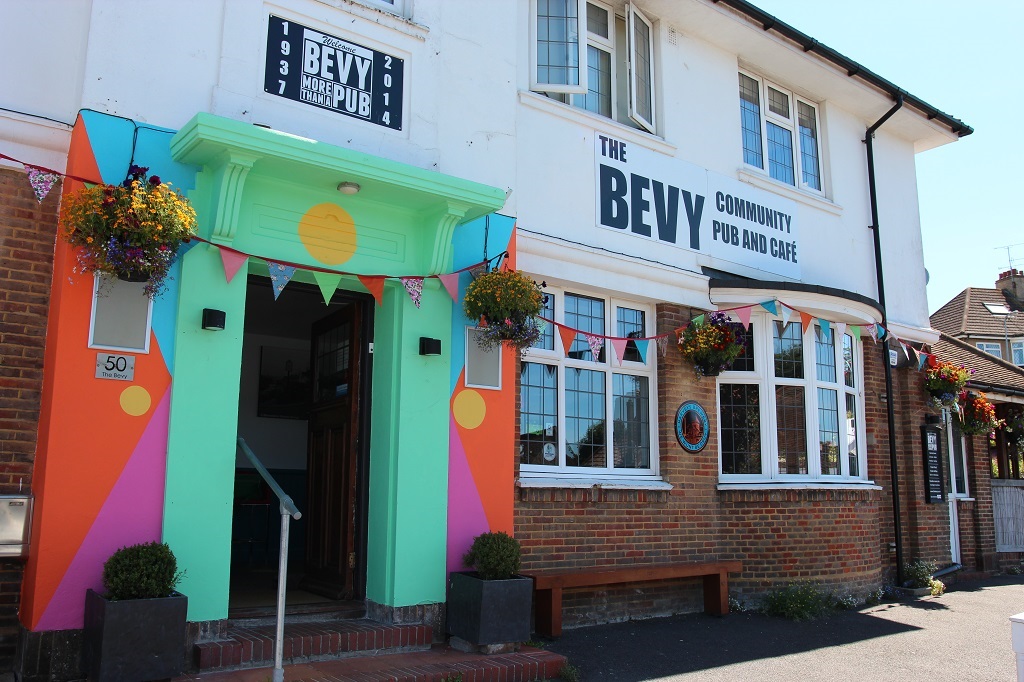If you’ve spent any time in the UK, you might have heard people singing the praises of pubs, or recounting myths about them. George Orwell’s short 1946 essay ‘The Moon Under Water’ captures the essence of a perfect pub – in the mind of its author – and it’s not just about the fixtures and fittings, or the beer, though these are important. It’s about the flow of people, the possibility of socialising or sitting quietly, the atmosphere.
Anyone who likes pubs might have their own idea of what makes a good one, though. There’s a lot to be said about what they’re for, and what they could become in a time when communal spaces are threatened or milked for profit.
Pubs are part of a history of sociable places in a society that’s often repressed and reserved, places where you can let loose a little, drop your inhibitions, sing, play games, be profane, talk nonsense, argue, make plans. In different places and times, they’ve been safe spaces for some and not others: not everyone is made to feel welcome in every pub. But sometimes a pub might become a safe haven for a subculture or it might even hit that beautiful contradiction: a regular local that welcomes outsiders.
When pubs are good, their beauty comes from their quirks, the way they offer something that can’t quite be replicated. Pubs across the UK are under increasing pressure to lose their character, to survive financially by smoothing down their edges, to become part of a big chain, or be sold off for flats. It’s hard work carrying on.
So what does the future hold? Talking about the future is hard, because pubs are inextricably linked with the past – even the most ordinary pub can evoke a strong sense of nostalgia. But even if you’ve moved on, people will always need a place to get together. In some places, tiny independent breweries and tap rooms are popping up and thriving; in others, familiar pubs continue to meet a need; elsewhere, business has collapsed, and some never made it past the Covid-19 pandemic.
Perhaps the perfect pub exists only in the mind. But sometimes the right pub comes along to meet a need and ends up growing into something really special. A good example is the Bevendean Cooperative Pub – ‘The Bevy’ for short – in Moulsecoomb, Brighton, a community pub in a largely working-class area, run by locals for the benefit of about 18,000 people who live in the area.
The building had been a hotel and pub for decades after opening in the 1930s. After its closure, it was earmarked for student accommodation, but after a four-year struggle, locals opened it as a community-owned pub in 2014.
Nowadays, it continues to be a great pub, but also more. It’s also a centre for afterschool clubs, a seniors club, community market and educational events. The value that these bring is incalculable, but money imposes limits. It’s exhausting work, and it relies on being creative, listening to ideas, inviting people in. As pandemic lockdowns were imposed, The Bevy delivered emergency meals to elderly and other vulnerable people in the surrounding area, improvising to meet demand.
Despite masses of energy and good will, The Bevy now faces severe challenges as inflation mounts and rents and stock prices go up and up. The pub is run as a community benefit society. Members of the community get a say in how the pub is run, and The Bevy depends on grants and donations, as well as takings from food and drink. The value it creates extends far beyond the balance sheet.
The Bevy’s not the only community pub in the UK, but it’s unusual to find one on an estate, where many households are finding it harder to make ends meet. The chair of The Bevy recently issued an appeal for ideas and support to avoid it having to close its doors. They got a heartfelt response from the local community, and many people clearly value the place dearly for what it is and does. But this is a crucial time as the pub seeks to carve out a future.
Supporting The Bevy is possible through one-off or monthly donations. To find out more and offer support, visit The Bevy website.
